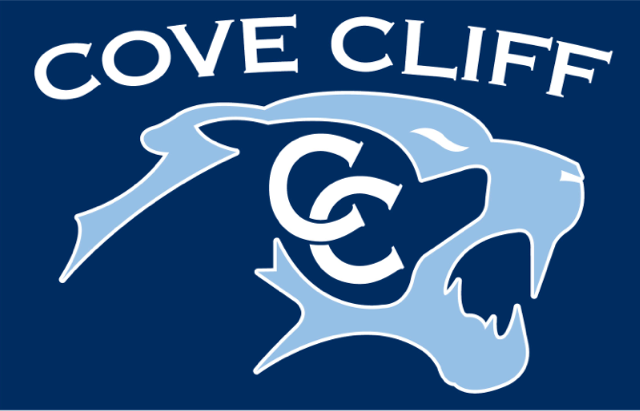Vision to Goal Setting
What is our Vision for Learning?
Traditional Acknowledgement:
We would like to thank the Coast Salish people, specifically the Tsleil-Waututh Nation and Squamish Nation whose unceded traditional territory Cove Cliff resides on. We value the opportunity to learn, live, grow and share educational experiences on these beautiful lands.
Cove Cliff Cares
At Cove Cliff, the staff is actively working to foster an inclusive and diverse learning environment, recognized for their dedication and compassion in nurturing positive spaces to ensure that each student is represented in the classroom and in the hallways.
The students and staff of Cove Cliff are working towards embracing inclusivity, striving to celebrate diversity and demonstrate mutual respect. Older students are beginning to serve as role models for younger peers, fostering a growing sense of leadership and camaraderie across all age groups, leading house teams and student clubs. At Cove Cliff, we strive to understand and care for one another.
The Cove Cliff school community is evolving on a foundation of respect and solidarity, supported by a deeply involved network of parents.
.
.
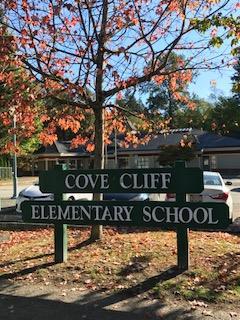
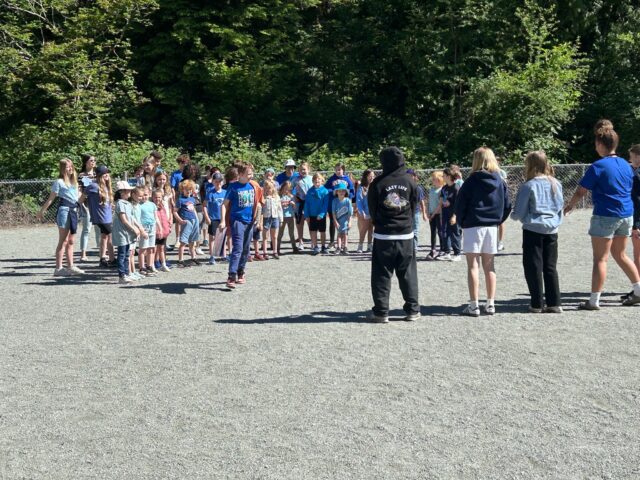
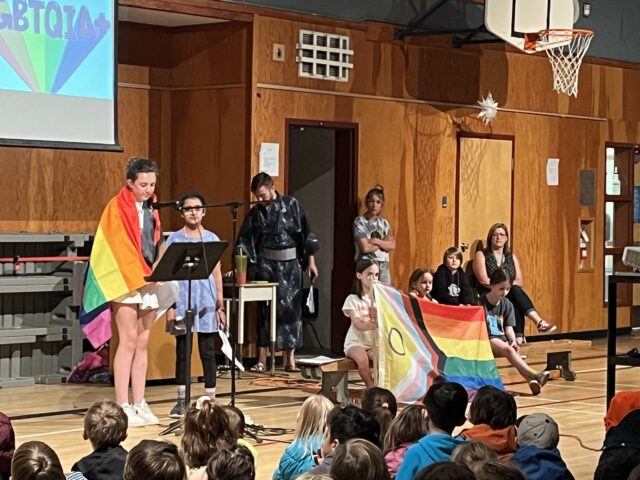
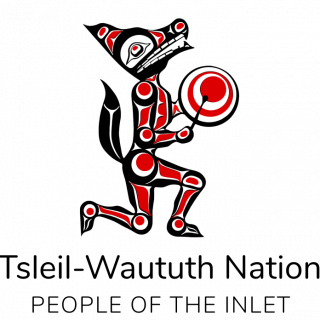
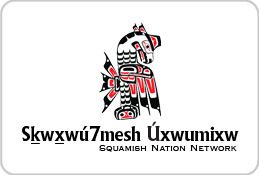
Planning & Implementation
What is our Action Plan?
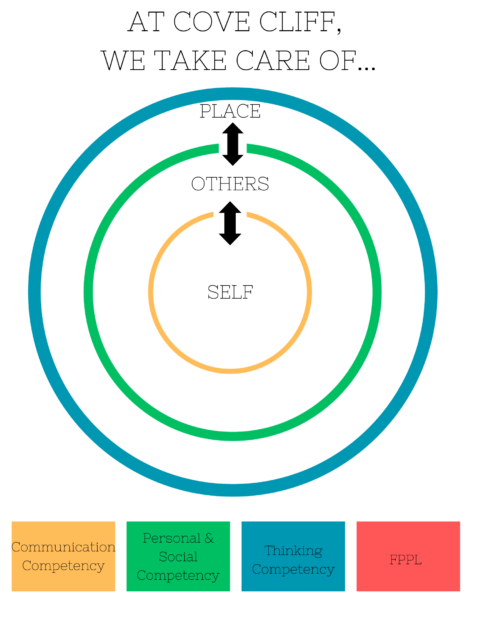 This year, our efforts focused on integrating our goals and values with the First Peoples Principles of Learning and the Core Competencies. Drawing upon a solid foundation of community and collaboration, we worked to implement practices that celebrate our identities in relation to each other and our place. Through collaborative brainstorming activities, consistent themes emerged that reflect our shared aspirations, values, beliefs, and developmental pursuits.
This year, our efforts focused on integrating our goals and values with the First Peoples Principles of Learning and the Core Competencies. Drawing upon a solid foundation of community and collaboration, we worked to implement practices that celebrate our identities in relation to each other and our place. Through collaborative brainstorming activities, consistent themes emerged that reflect our shared aspirations, values, beliefs, and developmental pursuits.
- We revised our school plan to focus on taking care of self, others and place
- We have been intentional in building community and ensuring that every voice is represented at the table
- Our School Plan review began with our administrators and staff, then grew to include discussions with students and families.
- Our School Planning Team meets regularly to review our goals, objectives and strategies, as well as plan school-wide events.
School Goal #1
Literacy/Numeracy – To build reading strategies with all of our students. At Cove Cliff we are using the reading strategies from the NVSD Literacy 44 program. Literacy 44 provides strategies that can be used at home and at school when reading. Using the skills and knowledge gained through, we are embarking on a numeracy resource project beginning in the 2024/25 school year.
We began as a pilot school for the NVSD Early Literacy Project and are now in our fourth year of actively participating in the project. Two of our teachers were part of the District’s Early Learning Literacy project. Whether a student is working on building their literacy or, if they are extending their literacy skills, our goal is for all students to be at or above grade level. We are expanding on this goal to include numeracy and have been selected as a numeracy resource pilot for the 2024-2025 school year.
School Goal #2
At Cove Cliff, we explore ways that we can positively affect Social Emotional Learning and Self-Regulation – care for self, place, and others.
2020-present with a trauma informed lens, we are using Second Step and Open Parachute with our students. Second Step is a program rooted in social-emotional learning (SEL) that helps transform schools into supportive, successful learning environments uniquely equipped to encourage children to thrive. More than just a classroom curriculum, Second Stepâs holistic approach helps create a more empathetic society by providing education professionals, families, and the larger community with tools to enable them to take an active role in the social-emotional growth and safety of today’s children.
School Goal #3
First Peoples Principles of Learning – Learning recognizes the role of Indigenous knowledge.
This principle reflects the understanding that teaching and learning is the responsibility of all members of a community. The responsibility for teaching belongs to everyone in the community. As people develop their skills and knowledge in particular areas it is expected that they will in turn teach others. This is seen as a responsibility that ultimately strengthens communities.
As a school community we are learning more about Truth, Healing and Reconciliation and how to “Go Forward with Courage” as we learn about the history of Indigenous peoples in Canada.
Staff worked alongside Laura Lewis, an Indigenous Support Worker to enhance their program and include authentic voice and representation into their practice. School wide activities and assemblies were held to honour TRC and Orange Shirt Day, The Moosehide Campaign, and Indigenous Peoples Months. Laura walked alongside staff and students sharing knowledge, stories, and art.
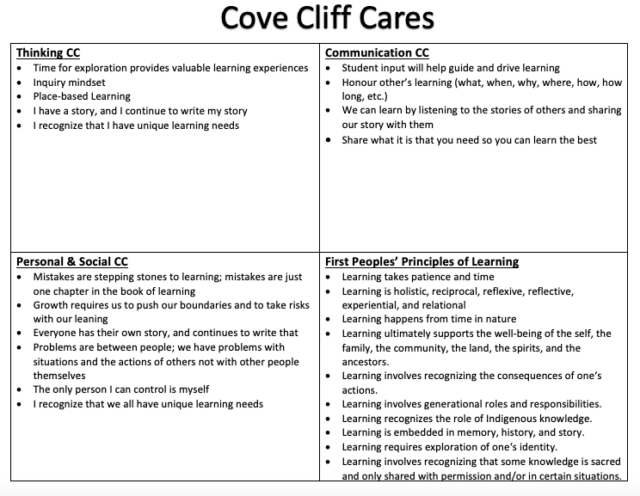
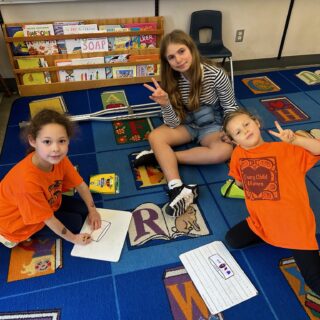
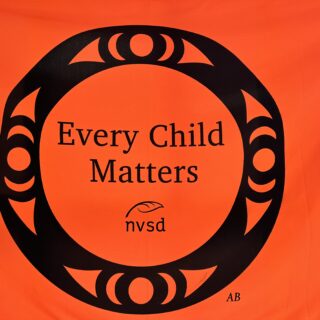
Monitor Evaluate & Adapt
What are our Indicators of Progress?
What are our Indicators of Progress?
- Caught-yas- schoolwide PBIS tool to monitor how students are taking care of self, others and place
- Staff, students and families will used shared language
- Increase in school wide celebrations, school (family) teams, student voice, opportunities for student leadership
- Data from ELA, Level A & B assessments, numeracy pilot
- Track office referrals for behaviours
- Anecdotal data
Next Steps:
We continuously examine how our School Plan informs and reflects our values and our practice, by identifying and deepening the alignment between our goals, our decisions and our actions. We continue to consider the connection between our School Plan and our practice in the following areas:
- Numeracy literacy project
- Professional development and collaboration activities
- Learning resources and budget choices- shared language and vision
- Curriculum and instruction
- Increase spaces for sensory and regulation needs
- Increased opportunity for student involvement in clubs and activities
- Communication and engagement of our school community
Communicating Progress
How do we Communicate our Progress?
Staff – We communicate progress and planning through weekly CC Connects, Professional Days, monthly staff meetings. .
School Community Staff communicate our progress at our welcome back BBQ, PAC Meetings, Newsletters, What’s On, Communicating Student Learning and family conferences, meetings and daily lessons.
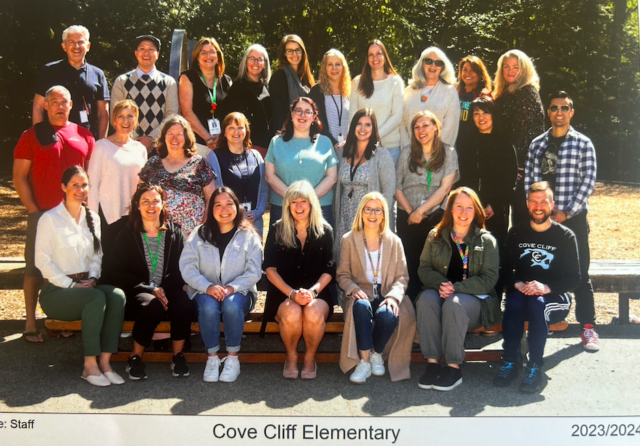
Latest Progress & Updates
Professional development:
2023-2024
- Math Workshop Series and book club
- Communicating Student Learning Series
- UFLI Foundations Training
- Safety Care Training
- Trauma Informed Practice and Book Club
- Emergency Release Drill
2020-2021
- Visual Arts, Second Step
2019-2020
- September 2019 – Emergency Preparedness
- October 2019 – Indigenizing the curriculum in relation to year plans. Viewing of Colonization Road and discussions.
- November 2019 – Coast Salish Weaving Project, Early Literacy Pilot Project, Trauma Informed practice
- January 2020 – NVSD Early Literacy Project, Cove Cliff Literacy K-7 review, Physical Literacy
2023-2024 Staff Collaboration included:
- Communicating Student Learning professional development- looking at the performance indicators and revised language
- Math Workshop
- Numeracy Resource Pilot
Thank you PAC
- PAC-funded purchase of Technology – new computer lab!
- PAC funded: buses for field trips, Educational Enhancement, library books, Author visits, classroom funds per division, performances, First Aid training for Gr. 6 students, Mediated Reality – Jesse Miller, Saleema Noon – Sexual Health Educator
- Library – Purposeful and thoughtful collection of resources for the library and classrooms, funded by both Block Budget and PAC, that reflect our community and its diversity, and support curriculum and instruction
Curriculum and instruction:
- Emphasis on calm learning environments, regulation and sensory spaces
- Professional development and Staff Collaboration focused on curriculum, assessment and instruction
- Project-based learning opportunities for students
- Emphasis in curriculum and instruction on collaboration and communication
- Cheakamus Centre provides nature-based cross-curricular and Indigenous learning opportunities, teachers use our natural outdoor environment for learning: CC Outdoor Classroom as well as nearby parks
- increased student leadership fostered through Student Council, student-run assemblies, lunch monitoring, student morning announcements, student lunch monitors, environment club
Communication and engagement of our school community:
- School events for families: Welcome Back BBQ (Sept), Meet the Teacher (Sept.), Terry Fox Run (Sept) Halloween Parade (Oct.), Remembrance Day (Nov.), Winter Concert (Dec.), Celebration of Learning (Mar), Moosehide Campaign (May), Spring Fair (June) Community Appreciation Event (June), Pride Assembly (June), Indigenous Peoples Day (June)
- extra-Curricular Events: Math Club, Choir, Band, We Belong Club, Chess Club, Bunny Club, Drawing Club, Battle of the Books
- extra-Curricular Athletics: Cross Country (Gr. 4-7), Basketball (Gr. 7), Triple Ball (Gr. 6-7), Running Club (Gr. K-7), Track and Field (Gr. 4-7), Skipping club (K-4)
- PAC Contributions: Hot Lunch, Family movie night, Spring Fair, Fundraising: spirit wear, chocolate and poinsettias, Seycove Auction
- Food Access program and BC Fruit and Vegetable Program
- School Planning Team
- Amazing custodial staff providing a clean environment
- Student artwork in hallway displays
Communication and engagement of our community through multiple avenues:
Staff:
- email and Cove Cliff Web-site
- Friday staff “Cove Cliff Connects” week at a glance, and Thursday’s parent “What’s On” for the upcoming week
- regularly scheduled meetings: Staff, EA Huddle, OH and S, Primary Team, Intermediate Team, School Planning, Indigenous Education, Collaborative Inquiry Grants
Parents:
- School Messenger: Thursday “What’s On”, “Information and Reminders” as needed, newsletters
- Cove Cliff Webpage: Announcements, staff contacts, school calendar
- PAC Bulletin Board
- student agendas
- Communication: phone calls, email, parent-teacher conferences, IEP meetings, report cards

